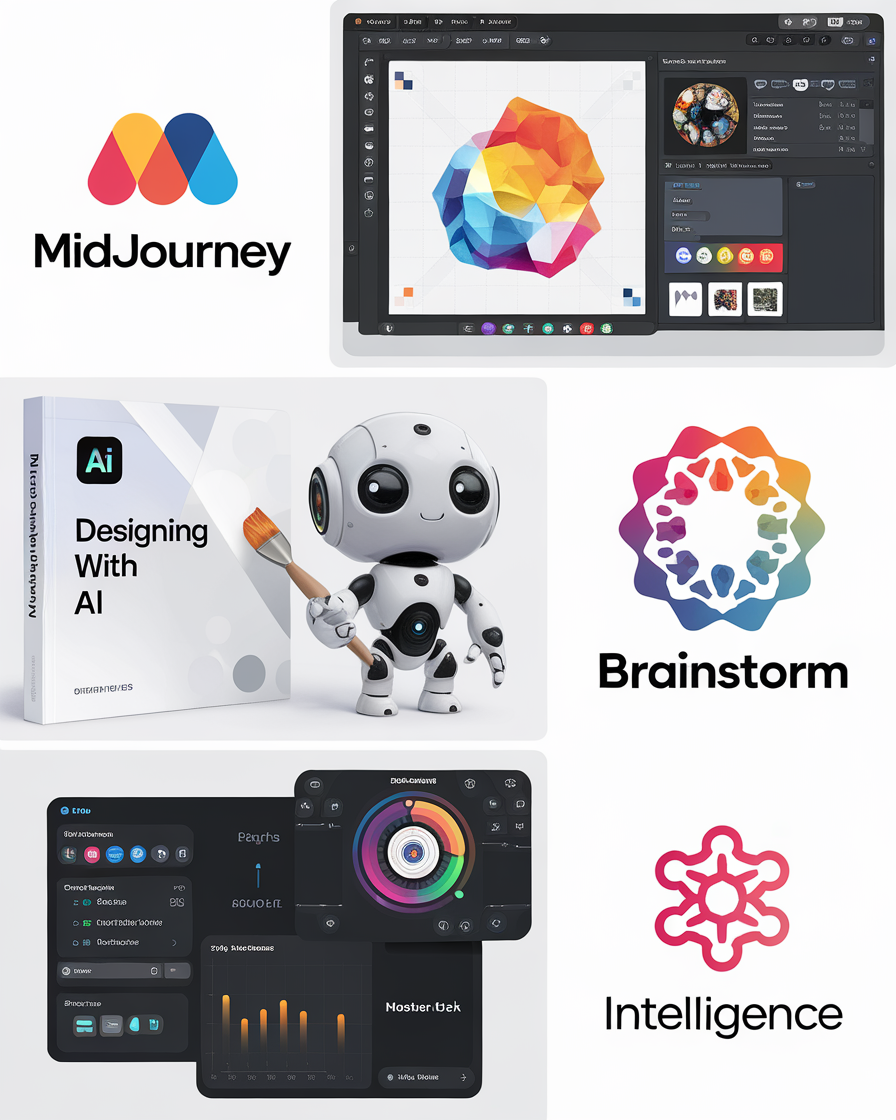For years, weekly planning felt like a chore. I’d sit down, blank calendar staring back at me, feeling overwhelmed by an endless to-do list and ambitious goals that often remained just that – ambitions. Despite trying countless planners, apps, and time management systems, I struggled with consistency, prioritization, and maintaining momentum. That is, until I discovered my ultimate planning ally: ChatGPT.
ChatGPT, and other large language models (LLMs), have revolutionized not just how I write, but how I think about and approach my productivity. It’s more than just a chatbot; it’s a dynamic thought partner, an infinite well of organizational strategies, and a tireless assistant that helps me translate vague aspirations into concrete, actionable plans. Indeed, integrating ChatGPT into my weekly planning routine has been a game-changer, allowing me to not only map out my tasks but also to truly crush my goals with unprecedented clarity and efficiency.
In this article, I’m going to pull back the curtain and share my personal, step-by-step framework for leveraging ChatGPT to plan my week and systematically achieve my objectives. Whether you’re a student, a professional, an entrepreneur, or simply someone looking to bring more structure and success to your life, you’ll find actionable insights here.
The Planning Predicament: Why Traditional Methods Often Fall Short
Before we dive into the “how,” let’s briefly touch on the “why.” Why do so many of us struggle with traditional planning?
- Overwhelm: Looking at a long list of tasks can be paralyzing.
- Lack of Clarity: Goals often feel too big, making it hard to identify the first step.
- Poor Prioritization: Everything seems urgent, leading to scattershot effort.
- Inflexibility: Rigid plans crumble when unexpected events occur.
- Lack of Accountability: It’s easy to push things off when there’s no immediate consequence.
- Motivational Dip: Without a clear path and visible progress, motivation wanes.
Ultimately, traditional methods often demand too much upfront mental energy and lack the dynamic adaptability needed for modern life. This is precisely where ChatGPT fills a critical gap, acting as a responsive, intelligent planning assistant.
My ChatGPT-Powered Weekly Planning Blueprint: A Step-by-Step Guide
My planning process with ChatGPT isn’t rigid; it’s a fluid conversation that adapts to my needs. However, it generally follows these key stages.
Stage 1: The Weekly Review & Brain Dump (Sunday Evening/Monday Morning)
I typically kick off my planning session on Sunday evening or first thing Monday morning. The goal here is to get everything out of my head.
My ChatGPT Prompt Strategy:
- Initiate the Brain Dump: I start by telling ChatGPT: “Act as my personal productivity coach. I need to plan my upcoming week. First, help me do a comprehensive brain dump of everything currently on my mind for work, personal life, and goals. Ask me structured questions to ensure I don’t miss anything.”
- Targeted Questioning: ChatGPT then prompts me with questions like:
- “What are your top 3 professional priorities for this week?”
- “What personal appointments or commitments do you have?”
- “Are there any recurring tasks you need to account for?”
- “What long-term goals are you working towards that need attention this week?”
- “What outstanding tasks from last week need to be carried over?”
- “Any specific challenges or potential roadblocks you foresee?”
- Benefit: Consequently, this interactive brain dump ensures I capture every stray thought, commitment, and aspiration. ChatGPT’s structured questioning prevents me from overlooking crucial details that might later derail my plans. It’s like having a meticulous assistant guiding your thought process.
Stage 2: Goal Clarification & Breakdown (Monday Morning)
Once I have a comprehensive list, the next step is to refine and break down my goals. This is where ChatGPT’s analytical power truly shines.
My ChatGPT Prompt Strategy:
- Goal Refinement (SMART): “Now, let’s take these goals and commitments. Help me refine them into SMART goals (Specific, Measurable, Achievable, Relevant, Time-bound). For each major goal, ask me questions to make it concrete.”
- Task Decomposition: “For my top 3-5 SMART goals, I need you to break them down into the smallest, actionable steps possible. Assume I have limited time blocks each day.”
- Example Prompt for Decomposition: “I want to ‘Launch the new marketing campaign by Friday.’ Break this down into daily tasks, considering typical workday hours and potential dependencies.”
- Benefit: Therefore, vague goals like “work on marketing” become “Complete initial draft of Q3 marketing campaign brief by Tuesday 5 PM, including target audience analysis and key messaging points.” This process makes daunting goals feel manageable and provides a clear roadmap.
Stage 3: Prioritization & Time Blocking (Monday Morning)
With actionable tasks in hand, it’s time to prioritize and allocate them to specific time slots. This is where many traditional planners fall short, often leading to an endless list without real-world application.
My ChatGPT Prompt Strategy:
- Prioritization Framework: “Based on these decomposed tasks, help me prioritize them using the Eisenhower Matrix (Urgent/Important) or the Ivy Lee method (Top 6 tasks). Ask me questions to guide this process.”
- Realistic Time Blocking: “Now, let’s create a rough daily schedule for the week. For each day (Monday-Friday), suggest blocks of time for these prioritized tasks, incorporating breaks, meetings, and personal time. Be realistic about energy levels and typical work patterns. Assume a work day from 9 AM to 5 PM with a one-hour lunch.”
- Handling Interruptions: “How can I build in flexibility for unexpected interruptions or urgent tasks that might arise?”
- Benefit: Consequently, ChatGPT helps me move beyond just a to-do list to a structured, time-blocked calendar. It prompts me to consider factors like energy levels and potential distractions, leading to a much more realistic and achievable schedule.
Stage 4: Anticipating Roadblocks & Problem-Solving (Monday Morning)
A robust plan isn’t just about what you will do; it’s also about what might stop you. This proactive step is crucial for maintaining momentum.
My ChatGPT Prompt Strategy:
- Identify Potential Obstacles: “Given my weekly plan, what are the potential roadblocks or challenges I might encounter? Think about common productivity killers like procrastination, unexpected meetings, technical issues, or energy dips.”
- Contingency Planning: “For each identified roadblock, suggest 2-3 specific strategies or backup plans to mitigate its impact. Be practical.”
- Motivation & Focus Strategies: “What are some quick motivational tips or focus techniques I can use if I feel myself losing steam during the week?”
- Benefit: Furthermore, by anticipating challenges, I can mentally prepare and even develop mini-contingency plans. This significantly reduces the likelihood of my week derailing due to unforeseen issues.
Stage 5: Daily Check-Ins & Adjustments (Throughout the Week)
My interaction with ChatGPT isn’t limited to Monday morning. It becomes a daily companion.
My ChatGPT Prompt Strategy:
- Morning Warm-up: “Good morning! Based on my plan for today, what are my top 3 most important tasks? Remind me of any key meetings or deadlines.”
- Mid-day Course Correction: “I’m feeling a bit stuck on [Task X]. Can you suggest a different approach or help me re-prioritize if needed?” or “An urgent task just came up. How can I adjust my remaining schedule for today to accommodate it?”
- End-of-Day Review: “What did I accomplish today? What tasks are moving to tomorrow? What did I learn about my productivity today?”
- Benefit: Ultimately, this continuous feedback loop allows for agile adjustments. Instead of feeling defeated when plans go awry, I can quickly consult ChatGPT for a strategic pivot, maintaining progress and reducing stress.
Stage 6: Weekly Reflection & Improvement (Friday/Sunday)
The planning cycle concludes with a vital reflection phase, which feeds directly into the next week’s planning.
My ChatGPT Prompt Strategy:
- Successes & Challenges: “Help me review my week. What went well? What challenges did I face, and how did I handle them? What did I accomplish that I’m proud of?”
- Lessons Learned: “What key lessons can I take from this week’s productivity? What patterns did I notice about my energy, focus, or time management?”
- Process Improvement: “Based on this review, what adjustments should I consider for my planning process with you next week?”
- Benefit: Therefore, this structured reflection ensures continuous improvement. I learn from my experiences, refine my prompts, and optimize my approach, making each subsequent week even more productive.
The Synergistic Power of Human + AI
The effectiveness of using ChatGPT to plan my week stems from several key factors:
- Externalized Brain: ChatGPT acts as an extension of my brain, holding complex information and prompting me when needed. This reduces cognitive load and frees up mental energy.
- Unbiased Perspective: Unlike friends or colleagues, ChatGPT offers an objective, non-judgmental perspective, helping me confront procrastination or unrealistic expectations.
- Instant Access to Frameworks: It can instantly recall and apply various productivity frameworks (SMART goals, Eisenhower Matrix, time blocking) without me needing to memorize them.
- Dynamic Adaptability: My plans aren’t set in stone. ChatGPT allows me to adjust and re-plan on the fly, making my system highly resilient.
- Reduced Decision Fatigue: By breaking down complex tasks and suggesting priorities, ChatGPT minimizes the number of small decisions I have to make, preserving my mental energy for actual work.
- Empowerment: Ultimately, I feel more in control of my time and goals. This sense of agency is a powerful motivator.
Beyond Planning: Crushing Goals with Consistent Action
Planning is only half the battle. Crushing goals requires consistent action. By making the planning process so smooth and intuitive with ChatGPT, I find myself more motivated and equipped to follow through.
- Built-in Accountability: Knowing that I’ve worked with ChatGPT to meticulously plan my week creates a subtle but effective sense of accountability.
- Clear Next Steps: There’s no ambiguity about what I need to do next, reducing procrastination.
- Visible Progress: Breaking down goals into small, achievable steps allows for frequent wins, which fuel motivation.
- Time for Deep Work: By automating the planning and organizing aspects, I free up more mental space and time for focused, deep work on my most important tasks.
Your Journey to AI-Powered Productivity
If you’ve struggled with weekly planning or achieving your goals, I wholeheartedly encourage you to experiment with ChatGPT (or a similar LLM). Start small, perhaps just with the brain dump and goal breakdown. Learn to prompt effectively, and don’t be afraid to experiment with different conversational styles.



